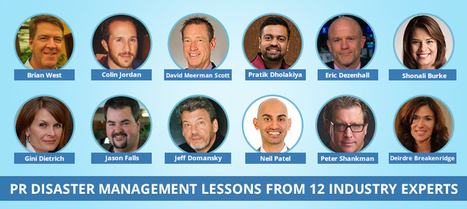Take 2010, when BP was confronted with one of the biggest oil spills in history. It appeared that the organization waited to reveal all the facts until they knew that the spill had become unstoppable. Or 2015, when the U.S. Environmental Protection Agency and the California Air Resources Board uncovered widespread cheating by Volkswagen on emissions standards – something Michael Horn, president and CEO of Volkswagen America, was alerted to a year earlier but remained silent. Even when the EPA confronted the company with their findings, Volkwagen missed the opportunity to communicate first. And more recently, The Wall Street Journal revealed a culture of secrecy at blood-testing start-up Theranos and questioned the effectiveness of the technology driving their operation, leading to a federal investigation.
In each case, the organization failed to self-disclose a crisis, and as a result, each faced enormous negative publicity that continues to draw critical attention from a broad public. Even Hollywood is interested: movies have been made, or are in the works, about all three scandals. The longstanding impact of a failure to acknowledge a problem cannot be overstated.
How should companies handle a crisis differently? Our research focuses on an alternative approach, one that is referred to as “stealing thunder.” It involves self-disclosing crises and major issues before media gets hold of the story. Earlier studies on stealing thunder have found that self-disclosing organizational crises increases the credibility of organizational spokespersons. When an organization breaks the news about incriminating events, these problems will also appear less severe. In addition, organizations that steal thunder are considered more reliable and consumers are more inclined to continue purchasing their products. Our recent study adds to these findings by examining if self-disclosing an organizational crisis may be as effective as it is because old news is considered no news. When self-disclosing incriminating information, individuals will perceive the subsequent negative publicity as old news, and hence, pay less attention to it....

|
Scooped by Jeff Domansky |
No comment yet.
Sign up to comment



 Your new post is loading...
Your new post is loading...








Research says proactive disclosure will help a company in a crisis.